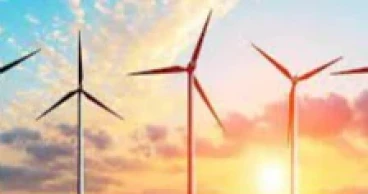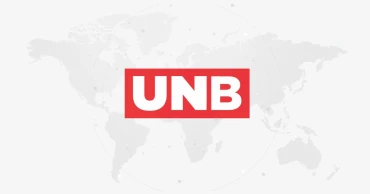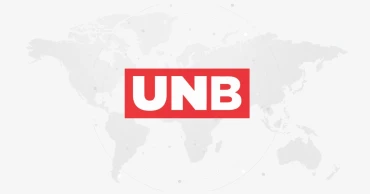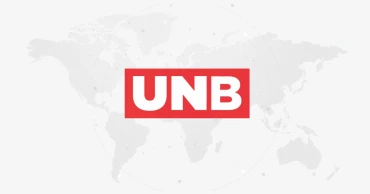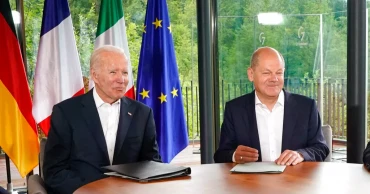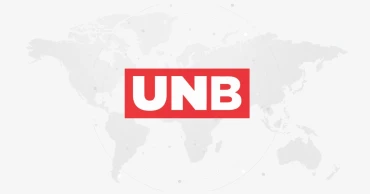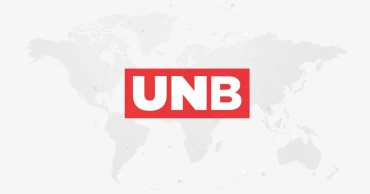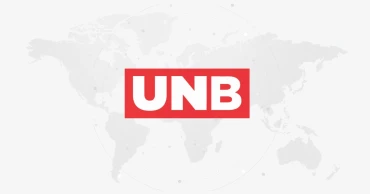Ukraine war
Trump says he will meet Putin in Alaska next Friday to discuss ending Ukraine war
President Donald Trump announced that he will meet Russian President Vladimir Putin next Friday in Alaska to discuss ending the war in Ukraine. This potential breakthrough comes after Trump expressed growing frustration over the lack of progress in stopping the conflict.
While the Kremlin has yet to confirm the meeting, both the U.S. and Russia had indicated that a summit could take place soon. The war, now more than three years old, has caused tens of thousands of deaths since Russia invaded Ukraine in 2022.
Speaking at the White House before officially confirming the date, Trump suggested any peace deal might involve a territorial exchange, though he did not offer specifics. Some analysts believe Russia may consider giving up parts of Ukraine it controls outside the four regions it claims to have annexed.
Trump said he plans to meet with Putin before any talks involving Ukrainian President Volodymyr Zelenskyy — a decision that has raised concerns in Europe about Ukraine potentially being excluded from key negotiations.
Hosting Putin on U.S. soil is also a surprising move, as meetings of this nature are typically held in neutral locations. The decision could be seen as a diplomatic win for Putin, who has long faced efforts by the West to isolate him over his actions in Ukraine.
Putin hasn’t visited the U.S. since 2015, when he attended the U.N. General Assembly in New York. The last major U.S.-Russia summit was in 2021, when President Joe Biden met with Putin in Geneva.
Trump announced the Alaska summit on social media shortly after revealing a separate peace initiative between Armenia and Azerbaijan. He said the “highly anticipated meeting” would take place on August 15 and that more details would follow.
Trump Suggests Territory SwapsTrump told reporters that the meeting would have happened sooner, but “security arrangements” delayed it. He claimed both Putin and Zelenskyy want peace and hinted at a possible land exchange between the two sides.
“It won’t be easy,” Trump said, “but there will be some land switched. It’ll be to the benefit of both sides.”
Pressed on whether this was the last chance for a peace deal, Trump declined to say so, adding that once violence escalates, it's hard to stop.
Two weeks ago, Trump threatened new sanctions and tariffs against Russia — especially targeting nations that continue buying Russian oil — if Moscow didn’t take steps toward peace. That deadline was Friday, but following the announcement of the upcoming meeting, the White House declined to comment on whether those sanctions would still go ahead.
Until now, Trump’s pressure campaign hadn’t yielded results. Russia continues to make slow but costly gains in Ukraine while heavily bombing civilian areas, and both sides remain far from agreeing on peace terms.
Fighting Intensifies Across UkraineUkraine’s military is engaged in fierce battles along a 620-mile front. The eastern Donetsk region, especially around Pokrovsk, is seeing some of the heaviest fighting, as Russia tries to push into neighboring regions.
Ukrainian commanders remain skeptical about peace. A drone unit leader in the Spartan Brigade, identified only by his call sign "Buda," said he believes Russia has no interest in negotiating. “The only option is to defeat them,” he said.
In southern Zaporizhzhia, another Ukrainian commander using the call sign "Warsaw" said their only option is to keep defending. “We are on our own land. We have no choice but to stand our ground.”
Putin Makes a Round of Diplomatic CallsOn Friday, the Kremlin said Putin spoke with Chinese President Xi Jinping, updating him on a recent meeting with Trump’s envoy Steve Witkoff. China, which the U.S. says has supported Russia militarily, expressed support for a long-term solution to the Ukraine conflict.
Putin also spoke with Indian Prime Minister Narendra Modi, following Trump’s executive order this week placing a 25% tariff on India over its purchases of Russian oil.
Other recent calls included leaders from South Africa, Kazakhstan, Uzbekistan, and Belarus — a move analysts believe signals that Putin may be preparing his allies for a possible settlement.
“This might be the first sign of a real peace agreement,” said Sergei Markov, a Moscow-based analyst with ties to the Kremlin.
Analysts Remain SkepticalDespite the upcoming summit, many experts doubt Putin’s willingness to end the war. The Institute for the Study of War, a U.S. think tank, said Putin is still trying to extract concessions from the West without seriously engaging in peace talks.
“Putin believes time is on his side — that he can outlast Ukraine and the West,” the institute stated in its latest report.
6 months ago
Trump, Putin to seek limited ceasefire on energy, infrastructure in Ukraine war
President Donald Trump and Russian President Vladimir Putin agreed during their call on Tuesday to seek a limited ceasefire against energy and infrastructure targets in the Russia-Ukraine war, according to the White House.
The White House described it as the first step in a “movement to peace” it hopes will eventually include a maritime ceasefire in the Black Sea and a full and lasting end to the fighting.
The White House said negotiations would “begin immediately” on those steps. It was not immediately clear whether Ukraine is on board with the phased ceasefire plan.
Trump to meet Putin for talks on U.S. ceasefire proposal
Putin also called on Trump to end foreign military and intelligence assistance to Ukraine as the U.S. looks to bring an end to Russia’s invasion of Ukraine, according to the Kremlin.
President Donald Trump and Russian President Vladimir Putin held a lengthy phone conversation on Tuesday as the White House pushes for Russia to sign off on its 30-day ceasefire proposal aimed at ending the Russian invasion of Ukraine.
11 months ago
Bangladesh economy hit hard by Ukraine war
Since the first shots were fired in February 2022, the war in Ukraine has affected the Bangladesh economy in a number of ways, and most of these can be described as supply chain disruptions. The most direct impact was felt in the energy sector, as prices skyrocketed on the international energy markets. Global oil prices soared to more than $120 a barrel amid concerns about a shortfall in global supplies from Russia, up from $70 a barrel before the war. Although prices fell back again to pre-war levels by the end of 2022, they have been rising again over the summer, and are headed back towards the $100 mark.
Bangladesh, Indonesia keen to work together in energy, agriculture, health sectors in line with signed bilateral agreementsBrent crude, the oil price benchmark, rose to a 10-month high last week of almost $94 a barrel, up from $72 a barrel at its lowest point in June – heading for its biggest quarterly increase since Russia’s invasion of Ukraine.The price of LNG had arguably the most direct impact on the Bangladesh economy. The war drove gas prices to historic highs, with spot prices in August 2022 up more than 640 percent over the price a year earlier. Thereafter though, prices fell and returned to their 2019-2021 average. By June 2023, they sat 92 percent lower than the 2022 peak, even though the war persisted, and Bangladesh, having been forced to abandon purchases on the spot market, was able to resume LNG supplies on the spot market.During the time that it was forced to go off the spot market for LNG, Bangladesh’s dependence on coal increased. But this traditionally cheap fuel has also seen prices rise through the war. The Coal from Russia/Ukraine region in world market stopped due to the ongoing war resulting in world wide shortages and disruption in various Industries including Steel which uses large amount of Coal. Russia/Ukraine which were major exporters of Steel and alloying elements required for making higher grade steel used in various applications couldn’t supply due to war (Force Majeure) which resulted in disruptions in Steel availability.
Nurul Alam joins Energy Division as new secretary Australian coal, that the country has been purchasing for its power plant in Godhra, India, soared to its highest closing price since the war in August of 2022, exceeding $400. Imports of coal from Russia were completely halted under sanctions that came into effect on August 10 in 2022. Now however, they are back to pre-war levels. Coal supplies for its power plants in Rampal and Godhra have both witnessed disruptions due to unpaid bills.As a result of all this, the Bangladesh government had to raise both the gas and power prices as a major part of power generation depends on imported fuels.Besides, the war had a negative impact on all kinds of imports due to shipping restrictions and increased insecurity on navigation routes.The war also continues to disrupt the global trade of key foods such as wheat and vegetable oils, along with fertilisers, and the impact is falling heavily on countries such as Bangladesh.Dependent on imports of those items to feed its large population, many poor and vulnerable to shocks, the country faces the prospect of rising food insecurity.
Efforts on to invite int’l bidding within a month for gas exploration: Energy SecretaryAccording to an International Food Price Research Institute study, the proportion of rural households facing moderate or severe food insecurity rose from 15% in early 2020 to 45% in Jan. 2021, then returned to pre-pandemic levels by the end of 2021.Now that 2021 recovery is in danger: Bangladesh saw a record rise in prices of staples in March 2022, along with volatility in the fertiliser market. In this post we discuss Bangladesh’s trade exposure to several commodities facing export restrictions, the fiscal impact of rising imports, and potential measures for easing food security pressures.Eminent economist and CPD executive director Dr Fahmida Khatun pointed out that the Russian invasion of Ukraine took place at a time when the world was just starting to recover from the fallout caused by more than two years of the Covid-19 pandemic. While the world came out of COVID pandemic, China took much longer and the Chinese supplies were absent for various critical items.But the recovery is facing inflationary pressure due to supply shortages in the face of higher demands as countries are beginning to expand economic activities.While the impact of the pandemic was a once-in-a-century shock for the world economy, the ongoing war has come as a new shock. Supply disruptions and financial sanctions pose serious economic challenges. With no signs of reconciliation between Russia and Ukraine, the global economic implications will remain severe for some time to come, according to Dr Fahmida.She said major countries including the US, the UK, Japan and the European Union (EU) have all suspended economic ties with Russia. Sanctions have been enforced on the Russian financial institutions with the objective to disrupt transactions with the country.As Russia is the third largest oil-producing country in the world, the global economy is suffering as a result of high oil prices. Though developed countries are sourcing their requirements from other oil-producing countries, small and poor countries are finding it difficult with their limited financial abilities to meet their energy requirement. In addition, high oil prices have a knock-on effect on other prices, leading to further inflationary pressure.The ramifications of these challenges are seen through higher commodity and oil prices. Food prices have skyrocketed. The CPD executive director said the global sanctions on Russia implies that Bangladesh's trade with Russia is going to be affected.Russia is a market for Bangladesh's ready-made garment (RMG) products. In FY2021, Bangladesh's export to Russia was to the tune of $550 million, and import from Russia was $480 million. Bangladesh imports wheat and maize from Russia. Sanctions mean Bangladesh will have to import these items from somewhere else.Rampal 1320 MW Power Plant has been impacted due to Coal shortages. Russia is also implementing several projects in Bangladesh. The Rooppur Nuclear Power Plant (RNPP) is a large project being implemented by Russia that involves USD 12.65 billion and is scheduled to be completed by 2025.The ongoing war and economic sanctions against Russia could delay this expensive project, which means cost escalation in Bangladesh. This implies higher loans and burden on the country, she observed.
2 years ago
Filipino carpenter, nailed to a cross, prays for end to Ukraine war that made poor people poorer
Eight Filipinos were nailed to crosses to reenact Jesus Christ’s suffering in a bloody Good Friday tradition, including a carpenter, who was crucified for the 34th time with a prayer for Russia’s invasion of Ukraine to end because it has made poor people like him more desperate.
The real-life crucifixions in the farming village of San Pedro Cutud in Pampanga province north of Manila resumed after a three-year pause due to the coronavirus pandemic. About a dozen villagers registered but only eight people showed up, including 62-year-old carpenter and sign painter Ruben Enaje, who screamed as he was nailed to a wooden cross with a large crowd watching in the scorching summer heat.
In a news conference shortly after his crucifixion, Enaje said he prayed for the eradication of the COVID-19 virus and the end of Russia’s invasion of Ukraine, which has contributed to gas and food prices soaring worldwide.
"It's just these two countries involved in that war, Russia and Ukraine, but all of us are being affected by the higher oil prices even if we’re not involved in that war,” said Enaje.
Ahead of the crucifixions, Enaje told The Associated Press that the steep increases in oil and food prices after Russia invaded Ukraine made it harder for him to stretch his meager income from carpentry and sign making.
Thousands of people, including foreign tourists, came to watch the annual religious spectacle in San Pedro Cutud and two other nearby rural villages.
Kitty Ennett, a veterinarian from Ireland, said the crucifixions were “a very religious experience” and they were worth the long trip from her home in the United Kingdom.
“When I was seeing the young man doing the flogging and going up to the cross, it’s very moving to see how much they sacrifice for their faith,” Ennett told The AP. “They really put themselves in the shoes of Jesus.”
Enaje survived nearly unscathed when he fell from a three-story building in 1985, prompting him to undergo the ordeal as thanksgiving for what he considered a miracle. He extended the ritual after loved ones recovered from serious illnesses, one after another, turning him into a village celebrity as the “Christ” in the Lenten reenactment of the Way of the Cross.
Ahead of their crucifixion on a dusty hill, Enaje and the other devotees, wearing thorny crowns of twigs, carried heavy wooden crosses on their backs for more than a kilometer (more than half a mile) in the brutal heat. Village actors dressed as Roman centurions later hammered 4-inch (10-centimeter) stainless steel nails through his palms and feet, then set him aloft on a cross under the sun for about 10 minutes.
Other penitents walked barefoot through village streets and beat their bare backs with sharp bamboo sticks and pieces of wood. Some participants in the past opened cuts in the penitents’ backs using broken glass to ensure the ritual was sufficiently bloody.
The gruesome spectacle reflects the Philippines’ unique brand of Catholicism, which merges church traditions with folk superstitions.
Many of the mostly impoverished penitents undergo the ritual to atone for their sins, pray for the sick or for a better life, and give thanks for miracles.
Church leaders in the Philippines have frowned on the crucifixions and self-flagellations, saying Filipinos can show their faith and religious devotion without hurting themselves and by doing charity work instead, such as donating blood.
Robert Reyes, a prominent Catholic priest and human rights activist in the country, said the bloody rites reflect the church’s failure to fully educate many Filipinos on Christian tenets, leaving them on their own to explore personal ways of seeking divine help for all sorts of maladies.
Folk Catholicism has become deeply entrenched in the local religious culture, Reyes said, citing a chaotic annual procession of a black statue of Jesus Christ called the Black Nazarene, which authorities say draws more than a million devotees each January in one of Asia’s largest religious festivals. Many bring towels to be wiped on the wooden statue, believing it has powers to cure ailments and ensure good health and a better life.
“The question is, where were we church people when they started doing this?” Reyes asked, saying the clergy should immerse itself in communities more and talk with villagers. “If we judge them, we’ll just alienate them.”
The decadeslong crucifixion tradition, meanwhile, has put impoverished San Pedro Cutud — one of the more than 500 villages in rice-growing Pampanga province — on the map.
Organizers said more than 15,000 foreign and Filipino tourists and devotees gathered for the cross nailings in Cutud and two other nearby villages. There was a festive air as villagers peddled bottled water, hats, food and religious items, and police and marshals kept order.
“They like this because there is really nothing like this on earth,” said Johnson Gareth, a British tour organizer, who brought 15 tourists from eight countries, including the U.S., Canada and Germany, to witness the crucifixions.
“It’s less gruesome than people think," Gareth told The AP. "They think it’s going to be very macabre or very disgusting but it’s not. It’s done in a very respectful way.”
2 years ago
Student gets 8 years in prison for criticizing Ukraine war
A court in Moscow sentenced a student activist to 8 1/2 years in prison for social media posts criticizing Russia’s war in Ukraine, the latest step in a sweeping crackdown on dissent unleashed by the Kremlin.
Dmitry Ivanov, 23, was convicted of spreading false information about the Russian army, which was made a criminal offense under a new law that Russian lawmakers rubber-stamped a week after Moscow sent troops into Ukraine.
The legislation has been used to prosecute individuals who deviate from the government’s official narrative of the conflict that the Kremlin insists on calling “a special military operation.”
Prominent opposition politicians, such as Ilya Yashin, who is serving an 8 1/2 prison term, and Vladimir Kara-Murza, who is in jail awaiting trial, also were charged with spreading false information about the military.
Also Read: A year into Ukraine war, bodies dug up in once occupied town
Ivanov was charged over a number of social media posts in his Telegram channel that called Russia’s campaign in Ukraine a “war” and talked about Russian forces attacking civilians and civilian infrastructure in Ukraine, committing war crimes in the Kyiv suburbs of Bucha and Irpin, and targeting the Zaporizhzhia Nuclear Power Plant. Most were reposts from other sources.
At the time of his April 2022 arrest, Ivanov was a student at Lomonosov Moscow State University, one of Russia’s top universities also known as the MSU. He ran a popular Telegram channel called Protest MSU, which was launched in 2018 to cover student protests against the construction next to the university’s main building of a fan zone for the Russia-hosted World Cup soccer tournament.
Ivanov initially was jailed for 10 days on the charge of organizing an unauthorized rally. Authorities jailed him again on the same charge for 25 days, and then he was arrested over the social media posts.
Also Read: Russians mark Ukraine war anniversary with flowers, arrests
While in custody, the student missed his final exams and failed to submit his final dissertation. He was expelled from the university.
During Ivanov’s trial, in an unusual twist the court approved a defense request to subpoena Russian Foreign Minister Sergey Lavrov, Russian Defense Ministry spokesman Igor Konashenkov and Russia’s ambassador to the U.N., Vasily Nebenzya.
Ivanov’s lawyers argued that since the authorities had used the officials’ statements to prove that Ivanov’s social media posts contained false information, they should be deposed in court.
However, neither of the three complied with the subpoenas to appear in court.
In his final address to the court last week, Ivanov rejected the charges against him as “looking absurd” and said the crime he was prosecuted for “shouldn’t exist at all.”
“The investigation, in trying to accuse me of spreading ‘fakes,’ has built one big fake (itself). Literally the entire indictment, from the first to the very last word, contradicts the reality,” Ivanov said. “I, in the meantime, stand by every word I wrote a year ago.”
2 years ago
Ukraine unyielding in Bakhmut as Russian troops close in
Ukrainian military leaders are determined to hold onto Bakhmut, Kyiv officials said Monday, even as Russian forces continued to encroach on the devastated eastern Ukrainian city that they have sought to capture for six months at the cost of thousands of lives.
Ukrainian President Volodymyr Zelenskyy’s office said he chaired a meeting with military officials during which the country’s top brass advocated strengthening Ukrainian positions there.
Intense Russian shelling targeted the Donetsk region city and nearby villages as Moscow deployed more resources there in an apparent bid to finish off Bakhmut’s resistance, according to local officials.
“Civilians are fleeing the region to escape Russian shelling continuing round the clock as additional Russian troops and weapons are being deployed there,” Donetsk Gov. Pavlo Kyrylenko said.
Russian forces that invaded Ukraine just over a year ago have been bearing down on Bakhmut for months, putting Kyiv’s troops on the defensive but unable to deliver a knockout blow.
More broadly, Russia continues to experience difficulty generating battlefield momentum. Moscow’s full-scale invasion on Feb. 24, 2022, soon stalled and then was pushed back by a Ukraine counteroffensive. Over the bitterly cold winter months, the fighting has largely been deadlocked.
Its importance has become psychological — for Russian President Vladimir Putin, prevailing there will finally deliver some good news from the battlefield, while for Kyiv the display of grit and defiance reinforces a message that Ukraine was holding on after a year of brutal attacks to cement support among its Western allies.
Read more: Russian shelling hits Ukrainian town; Bakhmut battle rages
U.S. Secretary of Defense Lloyd Austin endorsed that view Monday, saying during a visit to Jordan that Bakhmut has “more of a symbolic value than … strategic and operational value.”
He added that Moscow is “continuing to pour in a lot of ill-trained and ill-equipped troops” in Bakhmut, whereas Ukraine is patiently “building combat power” elsewhere with Western military support ahead of the launch of a possible spring offensive.
Even so, some analysts questioned the wisdom of the Ukrainian defenders holding out much longer, with others suggesting a tactical withdrawal may already be underway.
Michael Kofman, the director of Russia studies at the CAN think tank in Arlington, Virginia, said that Ukraine’s defense of Bakhmut has been effective because it has drained the Russian war effort, but that Kyiv should now look ahead.
“I think the tenacious defense of Bakhmut achieved a great deal, expending Russian manpower and ammunition,” Kofman tweeted late Sunday. “But strategies can reach points of diminishing returns, and given Ukraine is trying to husband resources for an offensive, it could impede the success of a more important operation.”
Ukrainian officials have previously raised the possibility of a tactical retreat.
The Institute for the Study of War, a Washington-based think tank, noted that urban warfare favors the defender but considered that the smartest option now for Kyiv may be to withdraw to positions that are easier to defend.
In recent days, Ukrainian units destroyed two key bridges just outside Bakhmut, including one linking it to the nearby hilltop town of Chasiv Yar along the last remaining Ukrainian resupply route, according to U.K. military intelligence officials and other Western analysts. Demolishing the bridges could be part of efforts to slow down the Russian offensive if Ukrainian forces start pulling back from the city.
“Ukrainian forces are unlikely to withdraw from Bakhmut all at once and may pursue a gradual fighting withdrawal to exhaust Russian forces through continued urban warfare,” the ISW said in an assessment published late Sunday.
The Bakhmut battle has also served to expose Russian military shortcomings and bitter divisions.
Yevgeny Prigozhin, the millionaire owner of the Wagner Group military company that spearheaded the Bakhmut offensive, has been at loggerheads with the Russian Defense Ministry and repeatedly accused it of failing to provide his forces with ammunition. On Sunday, he again criticized top military brass for moving slowly to deliver the promised ammunition, questioning whether the delay was caused “by red tape or treason.”
Putin’s stated ambition is to seize full control of the four provinces, including Donetsk, that Moscow illegally annexed last fall. Russia controls about half of Donetsk province, and to take the remaining half of that province its forces must go through Bakhmut.
The city is the only approach to bigger Ukrainian-held cities since Ukrainian troops took back Izium in Kharkiv province during a counteroffensive last September.
But taking at least six months to conquer Bakhmut, which had a prewar population of 80,000 and was once a popular vacation destination, speaks poorly of the Russian military’s offensive capabilities and may not bode well for the rest of its campaign.
“Russian forces currently do not have the manpower and equipment necessary to sustain offensive operations at scale for a renewed offensive toward (the nearby cities of) Kramatorsk and Slovyansk, let alone for a years-long campaign to capture all of Donetsk Oblast,” the ISW said.
Bakhmut has taken on almost mythic importance to its defenders. It has become like Mariupol — the port city in the same province that Russia captured after an 82-day siege that eventually came down to a mammoth steel mill where determined Ukrainian fighters held out along with civilians.
Moscow looked to cement its rule in the areas it has occupied and annexed. Russian Defense Minister Sergei Shoigu traveled to Mariupol and toured some of the city’s rebuilt infrastructure, the Defense Ministry reported Monday.
Shoigu was shown a newly built hospital, a rescue center of the Emergency Ministry and residential buildings, the ministry said.
2 years ago
Biden, Scholz to huddle on Ukraine war at White House
German Chancellor Olaf Scholz is visiting the White House on Friday for a private meeting with President Joe Biden as both allies become increasingly vocal about their concerns that China may step off the sidelines and supply weapons to Russia for its invasion of Ukraine.
Such a step could dramatically change the war’s trajectory by allowing Moscow to replenish its depleted stockpiles.
China is Germany’s top trading partner, and European nations have generally been more cautious than the United States in taking a hard line with Beijing. However, there are signs that may be shifting as global rivalries grow more tense.
In a speech to the German parliament on Thursday, Scholz called on China to “use your influence in Moscow to press for the withdrawal of Russian troops, and do not supply weapons to the aggressor Russia.”
The U.S. and Germany have worked closely together to supply Ukraine with military and humanitarian assistance. But there has also been friction over issues such as providing tanks, and Washington has occasionally grown frustrated with Berlin's hesitance.
Also Read: US to send more ammo, folding armored bridges to Ukraine
Maintaining a steady flow of weapons to Kyiv will be critical in the war's second year, especially with both sides planning spring offensives.
“We’re proud of the collective efforts that we’ve taken together," John Kirby, a White House national security spokesman, said Thursday.
He said the U.S. has not seen any indication that China has made a decision on whether to provide weapons to Russia.
Scholz last visited the White House a little more than a year ago, shortly before Russia invaded Ukraine. Very little of Friday's meeting will be open to the public, and no announcements are expected afterward.
Unlike formal state visits, such as when French President Emmanuel Macron came to Washington last year, there will be no pomp and ceremony. Scholz's trip will lack the customary press conference where the two leaders take questions from reporters representing both countries.
Kirby described it as a “true working visit between these two leaders."
The meeting will be intimate, according to a senior German official and a U.S. official. Rather than being constantly flanked by advisers, the officials said, Biden and Scholz are likely to be the only people in the room for much of the time. The officials spoke on condition of anonymity because of the confidential nature of the talks.
In an interview with German broadcaster Welt, opposition leader Friedrich Merz accused Scholz of being secretive about his trip to Washington, which will take place without the customary press pack in tow. Merz suggested that Scholz had to smooth ruffled feathers over the deal to provide tanks to Ukraine.
Scholz dismissed any notion of discord between allies.
Asked by The Associated Press about the circumstances of his visit, Scholz said he and Biden “want to talk directly with each other," and he described “a global situation where things have become very difficult."
“It is important that such close friends can talk about all of these questions together, continually,” he said.
Jake Sullivan, Biden's national security adviser, hinted at some tension between the two countries on Sunday when appearing on ABC's “This Week.”
He said Biden originally decided against sending Abrams tanks to Ukraine, believing they wouldn't be immediately useful for Ukrainian forces. However, Sullivan said, Germany would not send its Leopard tanks “until the president also agreed to send Abrams.”
“So, in the interest of alliance unity and to insure that Ukraine got what it wanted, despite the fact that the Abrams aren’t the tool they need, the president said, ‘OK, I’m going to be the leader of the free world,’” Sullivan said. “'I will send Abrams down the road if you send Leopards now.' Those Leopards are getting sent now.”
Scholz's government has denied there was any such demand made of the U.S.
Max Bergmann, a former State Department official who leads the Europe Program at the Center for Strategic and International Studies, said the U.S. has often wanted Germany, the world's fifth-largest economy, to be more forceful on the global stage.
“There’s a hope that, instead of us having to push all the time, that Germany would take a leadership role," he said.
Bergmann said Germany has gone a long way toward strengthening its defense, but added that there's more work to do.
“The German way of seeing the world doesn’t always align with the U.S. way of seeing the world,” he said.
2 years ago
East-West showdown looms at G-20 FMs meeting in India
Fractured East-West relations over Russia’s war in Ukraine and increasing concerns about China’s global aspirations are set to dominate what is expected to be a highly contentious meeting of foreign ministers from the world’s largest industrialized and developing nations this week in India.
The increasingly bitter rift between the United States and its allies on one side and Russia and China on the other appears likely to widen further as the top diplomats from the Group of 20 gather in the Indian capital on Thursday. U.S. Secretary of State Antony Blinken, Chinese Foreign Minister Qin Gang and their Russian counterpart Sergey Lavrov will all be in attendance and battling for support from non-aligned members of the group.
While they will all be in the same room together, there was no sign that Blinken, who spent two days in Kazakhstan and Uzbekistan warning Central Asia about the threat Russia poses before traveling to Delhi, would sit down with either of them.
As it has at most international events since last year, the split over the war in Ukraine and its impact on global energy and food security will overshadow the proceedings. But as the conflict has dragged on over the past 12 months, the divide has grown and now threatens to become a principle irritant in U.S.-China ties that were already on the rocks for other reasons.
A Chinese peace proposal for Ukraine that has drawn praise from Russia but dismissals from the West has done nothing to improve matters as U.S. officials have repeatedly in recent days accused China of considering the provision of weapons to Russia for use in the war.
Those accusations have exacerbated the already poor state of affairs between the world’s two largest economies over Taiwan, human rights, Hong Kong and the South China Sea that took another hit last month with the U.S. discovery and then shoot-down of a Chinese surveillance balloon over American airspace that resulted in Blinken postponing a much-anticipated trip to Beijing.
A hastily arranged meeting between Blinken and China’s top diplomat Wang Yi on the margins of the Munich Security Conference two weeks ago yielded no tangible results. And recently renewed U.S. suggestions that the COVID-19 pandemic could have been the result of a Chinese lab leak have made the situation worse.
On Tuesday in Kazakhstan, Blinken again warned China against transferring lethal military equipment to Russia, saying there would be significant consequences for such actions. “China can’t have it both ways when it comes to the Russian aggression in Ukraine,” Blinken said. “It can’t be putting forward peace proposals on the one hand while actually feeding the flames of the fire that Russia has started with the other hand.”
Read more: G20 foreign ministers’ meet in Delhi: Momen to hold meetings on the sidelines
In the meantime, Moscow has been unrelenting in pushing its view that the West, led by the U.S., is trying to destroy Russia.
Ahead of the meeting, the Russian Foreign Ministry slammed U.S. policies, saying that Lavrov and his delegation would use the G-20 to “focus on the attempts by the West to take revenge for the inevitable disappearance of the levers of dominance from its hands.”
Read more: Blinken warns Central Asia of dangers from war in Ukraine
“The destructive policy of the U.S. and its allies has already put the world on the brink of a disaster, provoked a rollback in socio-economic development and seriously aggravated the situation of the poorest countries,” it said in a statement. “The entire world is suffering from the cynical revelry of illegal sanctions, the artificial breakup of cross-border supply chains, the imposition of notorious price ceilings and, in effect, from attempts to steal natural resources.”
The antagonism has left G-20 host India in the unenviable position of trying to reconcile clearly irreconcilable differences. The meeting is particularly crucial for India’s hopes to use its chairmanship of the group to leverage its position on the global stage and adopt a neutral stance on Ukraine in order to focus on issues of importance to developing nations like rising inflation, debt stress, health, climate change and food and energy security.
“I think those are equally important issues to focus on, of course along with the Russia-Ukraine conflict,” said Indian Foreign Secretary Vinay Kwatra, the most senior bureaucrat in the foreign ministry.
Read more: Modi urges G20 finance leaders to focus on ‘most vulnerable’
But just last week, India was forced to issue a chair’s summary at the conclusion of the G-20 finance ministers meeting after Russia and China objected to a joint communique that retained language on the war in Ukraine drawn directly from last year’s G-20 leaders summit declaration.
India hopes to avert a repeat of that, but prospects appear dim.
“We will see how it goes forward. It is a repetition of the Bali declaration,” said Indian foreign ministry spokesman Arindam Bagchi. “Obviously, we stand by that declaration. Our prime minister was there. There is no question of not agreeing with that text. We are with that text.”
So far, though, India has refrained from directly criticizing Russia, its major Cold War-era ally, while increasing imports of Russian oil, even as it has increasingly faced pressure to take a firm stand on Moscow. India has also abstained from voting in UN resolutions that condemn the Ukraine invasion.
“India’s messaging has been clear and consistent: It’s not about to criticize Russia, but it strongly opposes the war and supports all efforts to bring it to an end,” said Michael Kugelman, deputy director at the Wilson Center think tank.
“The West would prefer it go further, and Russia would prefer it say less, but each side has accepted New Delhi’s position, and India’s relations with both sides have remained strong throughout the war,” he said.
2 years ago
'Same Here': Country song features Ukraine President Zelenskyy
A year ago, country star Brad Paisley watched the news on television as Russian troops invaded Ukraine and, like many people around the world, he felt helpless at the images of people fleeing their homes.
“The world felt like it was in a new place that it hadn’t been in decades,” the three-time Grammy winner recalls.
On Friday, the one-year anniversary of the war’s start, Paisley released a new song called “Same Here,” featuring Ukrainian President Volodymyr Zelenskyy speaking proudly about his country and people.
Read more: Ukraine: Zelenskyy seeks more sanctions, fighting grinds on
The song is Paisley’s first from his new record, “Son of the Mountains,” to be released later this year on Universal Music Group Nashville.
The West Virginia native wrote the song with Lee Thomas Miller (co-writer on Paisley hits “The World” and “Perfect Storm”) and Dawes frontman Taylor Goldsmith. It’s a three-part narrative that reflects on universal similarities, despite distance and language.
While it doesn’t mention Ukraine specifically, the song ends with Paisley and Zelenskyy in conversation, recorded during a video call. Zelenskyy talks about Ukrainians’ desire for freedom, adding “There is no distance between our two countries in such values.”
“There’s just no differences,” Paisley told The Associated Press. “You can put us in different places with different flags and different languages, but we have so many similarities.”
Paisley is one of several celebrity ambassadors for Ukraine’s United24 crowdfunding effort, and has donated his time for other fundraising efforts to assist Ukrainians. But even he thought it would be a long shot to have the direct involvement of Zelenskyy, who has traveled the world advocating for Ukraine’s military and recovery efforts.
Read more: Ukraine’s Zelenskyy makes emotional appeal for EU membership
“I think he understands that art is how you reach the most people, especially in the heart,” Paisley said of Zelenskyy, who was an actor and comedian before becoming president.
“He can give as many speeches as he can give, but it’s a lot easier to hear something with a melody maybe.”
Zelenskyy didn’t just sign off on the song; he also suggested some changes to it, Paisley said.
Paisley’s royalties for the song will be donated to United24 to help build housing for thousands of displaced Ukrainians whose homes were destroyed in the war, he said. Using his platform to advocate for causes important to him has always been part of his career, whether it was opening a free grocery store in Nashville with his wife, Kimberly Williams-Paisley, or fighting hunger by donating 1 million meals during the pandemic.
“I wouldn’t be able to sleep at night if I didn’t sort of swing for the fence with things like this,” Paisley said. “For me, I’m happiest dealing with stuff as a songwriter that’s very true and very, very passionate. And sometimes I don’t know if you’d call it risky, but it’s more like it’s bigger than me.”
Read more: People across the world gather to mark war anniversary
Paisley brings his passion on stage during live shows. He’s been changing the lyrics to his hit song “American Saturday Night,” for instance, to replace a reference to the U.S.S.R. to “There’s a Ukrainian flag hanging up behind the bar.”
The new record will be his debut on UMG since moving from Sony’s Arista label, and he said “Same Here” reflects the kinds of big universal themes on it.
“We do deal with stuff going on in the world,” Paisley said. “How do you sing about things that are truly big — a big deal right now — that also don’t feel like maybe they’re the type of thing that you would be singing about typically? And yeah, on this album I have kind of really dug deep and tried to say something.”
Paisley, who has visited U.S. troops in Afghanistan, said he’s been invited to visit Ukraine, which he’d like to do. In the meantime, he hopes the song’s message will bolster the country now facing down year two of the war.
“That’s where it gets really rewarding... feeling like maybe the heart of this helps paint the picture they want to paint,” Paisley said.
3 years ago
G-20 meeting in India ends without consensus on Ukraine war
A meeting of finance chiefs of the Group of 20 leading economies ended on Saturday without a consensus, with Russia and China objecting to the description of the war in Ukraine in a final document.
The meeting hosted by India issued the G-20 Chair’s summary and an outcome document stating that there was no agreement on the wording of the war in Ukraine. The first day of the meeting took place on the anniversary of Russia’s invasion of Ukraine.
The Group of Seven major industrial nations announced new sanctions against Russia on Friday, just as the talks of the G-20 group wrapped up in confusion in the Indian technology hub of Bengaluru.
Also Read: German leader Scholz arrives in India to boost economic ties
U.S. Treasury Secretary Janet Yellen condemned the “illegal and unjustified war against Ukraine” at a session attended by Russian officials and reiterated calls for G-20 nations to do more to support Ukraine and hinder Moscow’s war effort.
At the last major G-20 meeting, in Bali, Indonesia, in November, leaders had strongly condemned the war, warning that the conflict was intensifying fragilities in the world’s economy. The group includes Russia and also countries like China and India that have significant trade with Moscow.
India's Finance Minister Nirmala Sitharaman told reporters that the communique prepared for the Bengaluru meeting carried two paragraphs from the Bali declaration, but Russia and China demanded they be deleted and said they could not be part of the final document this time.
Their contention was they had approved the Bali declaration under the then prevailing circumstances, she said. "Now they didn't want it," Sitharaman said. She didn't give any other details.
The Bali declaration said that “most members strongly condemned the war in Ukraine and stressed that it is causing immense human suffering and exacerbating existing fragilities in the global economy – constraining growth, increasing inflation, disrupting supply chains, heightening energy and food insecurity, and elevating financial stability risks.”
The declaration also said: "There were other views and different assessments of the situation and sanctions. G-20 is not the forum to resolve security issues, we acknowledge that security issues can have significant consequences for the global economy."
The second paragraph of the declaration, which is now unacceptable to Russia and China, said, "It is essential to uphold international law and the multilateral system that safeguards peace and stability. ... The use or threat of use of nuclear weapons is inadmissible. The peaceful resolution of conflicts, efforts to address crises, as well as diplomacy and dialogue, are vital. Today’s era must not be of war."
Sitharaman said the meeting could not issue a communique because of the objections raised by Russia and China and decided to opt for a summary and an outcome document.
3 years ago


